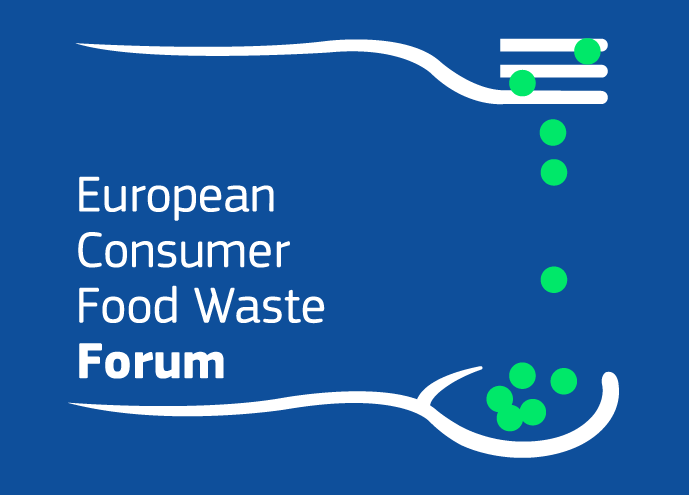Context
In the EU, over 59 million tonnes of food waste (132 kg/inhabitant) are generated annually (Eurostat, 2024), with an associated market value estimated at 132 billion euros (SWD (2023)421). Eurostat roughly estimates that around 10% of food made available to EU consumers (at retail, food services and households) may be wasted. At the same time, over 42 million people cannot afford a quality meal every second day (Eurostat, 2024). Food waste also has significant environmental, climate, and social impacts. If EU food waste were considered a Member State, it would be the EU’s 5th largest emitter of greenhouse has emissions (Sala et al, 2023).
Eurostat estimated households generate more than half of the total food waste (54%) in the EU (accounting for 72 kg per inhabitant) (Eurostat, 2024). The remaining 46% was waste generated upwards in the food supply chain: 19% by the manufacture of food products and beverages (25 kg per inhabitant), 11% by restaurants and food services (15 kg per inhabitant), 8% in the retail and other distribution of food (11 kg per inhabitant), and 8% in the primary production (10 kg per inhabitant) (Eurostat, 2024). The most wasted food groups are vegetables, fruits and cereals. Consumer food waste is primarily a behavioural issue, and reducing such waste is crucial to achieving the Sustainable Development Goal Target 12.3, which aims to halve food waste per capita by 2030.
The Farm to Fork Strategy outlines a series of actions to enable the EU’s transition to a sustainable food system. On 5 July 2023, the European Commission proposed setting legally binding food waste reduction targets for EU Member States to achieve by 2030, as part of the revision of the Waste Framework Directive. Specifically, Member States are required to implement measures to reduce food waste by the end of 2030:
10% reduction in processing and manufacturing,
30% reduction (per capita), jointly at retail and consumption (restaurants, food services and households).
Reducing food waste is crucial for establishing sustainable food systems and developing a circular bioeconomy, where biological resources are used sustainably. Additionally, the recovery of surplus food for redistribution to those in need has an important social dimension, ensuring more food is made available for human consumption.
Objectives
The aim of the project was to gather data and identify practical solutions to reduce food waste at the consumer level, including households and food services. The project objectives included:
Reviewing evidence on drivers of consumer food waste and levers for behavioural change;
Conducting research and data collection on interventions to prevent and reduce consumer food waste, in particular in EU Member States;
Evaluating the identified interventions based on their feasibility, reach and effectiveness;
Defining research protocols and recommendations for effective interventions and further research, to be tailored and implemented at national and regional levels;
Developing a compendium of multi-dimensional, multi-level, evidence-based tools that can be applied by the EU Member States, regional and local administrations.
The Forum
In July 2021, a public call was launched to find practitioners and researchers in the area of consumer food waste prevention to collaborate in the forum. As a result, 15 practitioners and researchers have been selected, and the Forum began its work in October 2021. The experts came from various countries and work in academia, NGOs and public institutions, bringing together a vast experience in reducing consumer food waste.
The main outcome of the European Consumer Food Waste Forum’s work is presented as a compendium of tools, best practices, and recommendations to help all key players engaging in actions to prevent food waste. The document shows the main findings of the collaboration, emphasising the importance of taking a systemic approach that considers the key drivers and levers of behavioural change when targeting food waste reduction at the consumer level. It provides policymakers, researchers, businesses, and practitioners a set of recommendations to act against consumer food waste. The compendium encourages cooperation with other stakeholders and concrete actions to address food waste and promote the establishment of sustainable food systems. Please check the Executive summary of the compendium (in all EU languages).
Project milestones
- October 2021
- June 2023
- 23 June 2023
- 5 June 2024
Toolkit to reduce consumer food waste
The findings of the Compendium have been digitalised into a Toolkit to reduce consumer food waste This comprehensive set of tools includes:
A summary video explaining how to use the toolkit.
Three video tutorials with practical guidance for designing, implementing, and evaluating food waste reduction actions (with subtitles in English, French, German, Spanish, Italian, Polish and Romanian).
The Food Waste Prevention Calculator a tool to calculate the environmental, economic, and nutritional impacts of waste reduction actions, based on life cycle thinking. It also provides ready to use messages about these impacts to support communication activities.
The Food waste action planner, an interactive tool that helps users choose between more than 70 food waste prevention actions based on their types and target audiences.
Leaflet’s with recommendations in food waste prevention for policymakers, food businesses and other organisations as well as schools (available in 24 EU languages).
Scientific reports and communication materials developed by the European Consumer Food Waste Forum.
Latest knowledge from this Project
More information
| Coordinators | DG SANTE - DG for Health and Food Safety JRC - Joint Research Centre |
| Geographic coverage | European Union |
| Project date |
to |
| Originally Published | Last Updated | 10 Aug 2021 | 24 Jun 2024 |
| Related links | |
| Knowledge service | Metadata | Behavioural insights Bioeconomy | Sustainable food system |
| Digital Europa Thesaurus (DET) | food wasteconsumer behaviourSustainable development goalsOrganic waste |
Recommended reading
National dialogue for achieving SDG 2 without breaching the 1.5 °C threshold in Kenya
CCBI seminar series
How the EU’s Vision for Agriculture and Food could shape global food security and climate change
Share this page

